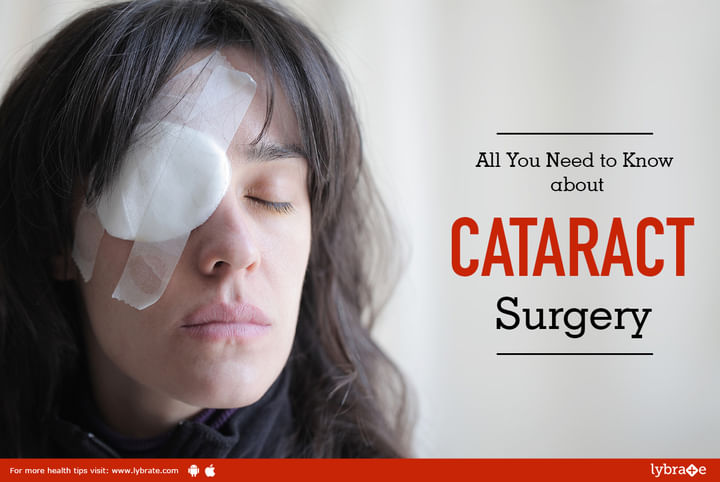All You Need to Know about CATARACT Surgery
All You Need to Know about Cataract Surgery
A cataract is defined as a clouding of lens in the eye where your vision gets blurred. A cataract affects the eyes, when light that passes through the lens prevents a clearly formed image from reaching your retina. The disease is very common and usually develops as your eyes age or due to any injury caused to the tissues that cover your eye's lens.
Types of cataracts:
Senile Cataract: This is the commonest of all. It is age-related clouding of the lens. It can affect the near or distance vision and can also cause glare and change in glasses power.
Secondary Cataract: It can be developed after surgery for other eye problems like glaucoma and other health conditions such as diabetes.
Traumatic Cataract: It can develop many years later after an injury caused to your eye.
Congenital Cataract: As the term explains, the disease may be inborn or some children might develop it at a later stage which often affects both eyes.
Radiation Cataract: It can form after you are exposed to some form of radiation.
A cataract surgery involves the extraction or cleaning of the cloudy lens, which is then replaced by a clear artificial lens.
Why does it happen?
There are lens that lies behind our iris and pupil which act much like a camera lens. It helps concentrate light onto the retina at the back of our eye to form a sharply defined image. Besides, the lens also helps our eyes to adjust focus and allows us to see things clearly both far away and up close. The lens is composed of protein and water where the protein is arranged in a manner to keep the lens clear thereby letting light pass through it.
However, as we grow old, some of the protein starts to become thick and cloud a small lens area. This is known as a cataract. With the passage of time, it may inflate and cover more of the lens, making it difficult for us to see.
Besides, there are other causes of cataract such as smoking, addiction of alcohol, prolonged sunlight exposure, to name a few.
When should you opt for a cataract surgery?
Believe it or not, but till date no eye drop or medication has proven to reverse or prevent the formation of a cataract. If a cataract is affecting your nearsightedness or alteration in your prescription, then new prescription eyeglasses may help to better your blurred vision. However, the only treatment for a cataract is the surgical removal of your natural lens. And, most eye doctors recommend this surgery only when the problem becomes severe and starts hampering your day-to-day activities, such as studying or driving at night.
If you would like to consult with me privately, please click 'Consult'.



+1.svg)
